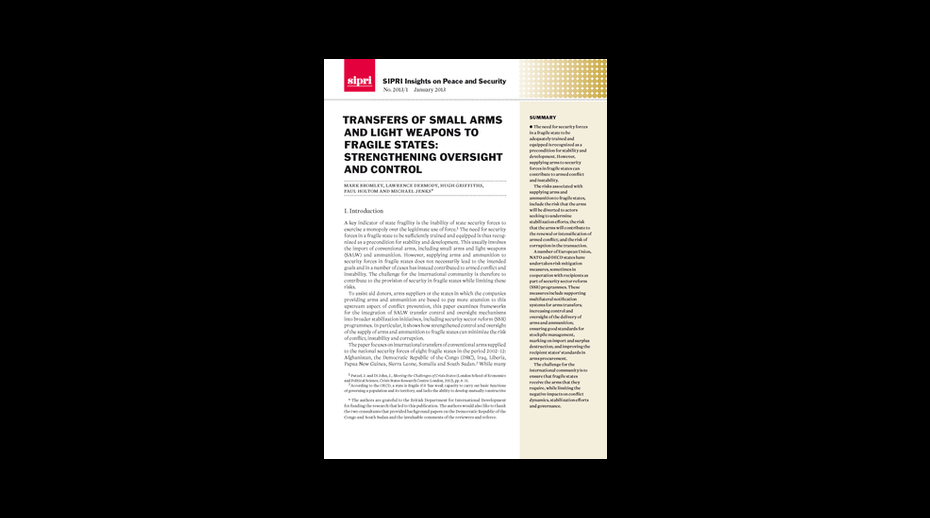
The need for security forces in a fragile state to be adequately trained and equipped is recognized as a precondition for stability and development. However, supplying arms to security forces in fragile states can contribute to armed conflict and instability.
The risks associated with supplying arms and ammunition to fragile states, include the risk that the arms will be diverted to actors seeking to undermine stabilization efforts; the risk that the arms will contribute to the renewal or intensification of armed conflict; and the risk of corruption in the transaction.
In the latest SIPRI Insights paper by SIPRI researchers Mark Bromley, Lawrence Dermody, Hugh Griffiths and Paul Holtom, together with Michael Jenks, the authors examine frameworks for the integration of SALW transfer control and oversight mechanisms into broader stabilization initiatives, including security sector reform (SSR) programmes.
In particular, the paper shows how strengthened control and oversight of the supply of arms and ammunition to fragile states can minimize the risk of conflict, instability and corruption.